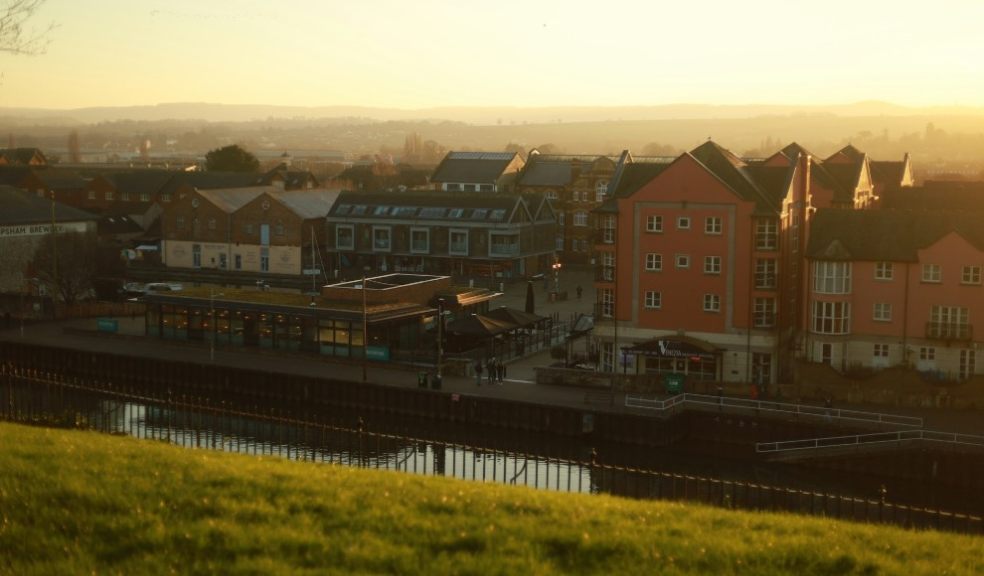
How Exeter Ranks in Internet Speeds Compared to the Rest of Devon
With the whole country pushing toward a digital future, it’s no surprise that the government pays close attention to the nation’s internet speeds. Data is kept for every constituency in the country, including those in Devon. This means we can see where Exeter ranks amongst its neighbours, as one of the best places to go online in the area.
Mending Digital Divides
As one of Devon’s foremost urban centres, Exeter enjoys faster internet compared to a lot of nearby rural communities. However, as we head into the future, both government and the private sector are working hard to mend this digital divide. They’re doing this because digital technology, and broadly the internet, is becoming crucial to the success of business owners and the economy at large.
Most businesses today maintain an online presence to find more customers. Other business models rely on the internet to function, as seen with streaming services, e-commerce stores or iGaming sites, which all deliver their services through a screen. Businesses like the online casino at Paddy Power Games are built on the internet, providing digitally simulated games like slots, spinning wheel games and even streamed table games. Without digital infrastructure, none of these business models would be sustainable online.
More broadly, the internet is also valuable for allowing remote work and disseminating information at a lightning-fast pace. While we have no risk of losing internet access, those communities with slower internet speeds today could see the urban-rural divide widen. This means more lost opportunities and, in the future, the potential to miss out on emerging but data-intensive advancements like AI. Recognising this, the government continues to fund internet speed upgrades in rural areas like Wales.
Devon’s Internet Speeds
That brings us to Devon and where Exeter ranks for internet speeds in the area. When measuring speeds, the government used two metrics – gigabit availability and average download speeds.
Gigabit availability is the percentage of households who, if they get an available service, can acquire speeds of one gigabit per second. The average download speeds are fairly self-explanatory and measured in megabits per second instead. For more figures, you can also find the full data breakdown from the Commons Library.
Plymouth Scrapes the Lead
After the 2024 boundary changes, there are now thirteen constituencies in Devon. As before, two of those represent Plymouth, separated into Plymouth Moor View and Plymouth Sutton and Devonport. In totality, Plymouth’s numbers only just beat out Exeter’s when all is considered.
Plymouth Moor View led the area with 92.8% gigabit availability and 192 Mbps average download speeds. Together, they make for the best figures in the whole of Devon. Plymouth Sutton and Devonport are behind with 90.1% gigabit availability and 179 Mbps.
Source: Unsplash
Exeter is a Close Second
Exeter is a close second and is actually ahead of Plymouth Sutton and Devonport, according to the data. Gigabit availability is at 90.4%, a whole twelve points higher than the national average of 78.5%. As for download speeds, they recorded 188 Mbps – second best in the region.
The neighbouring Exmouth and Exeter East constituency recorded an 83.1% gigabit availability and average download speeds of 130 Mbps. Compared to its neighbouring constituencies, it’s clear that Exeter is one of the best internet hotspots in Devon.
Other Devon Constituencies
Of the other constituencies, Torbay leads for its 87.1% gigabit availability and 168 Mbps download speeds. Both South West Devon (75.6%, 147 Mbps) and Newton Abbot (73.1%, 120 Mbps) clearly benefit from their proximity to Plymouth and Torquay, respectively.
The remaining constituencies look like this:
- Honiton and Sidmouth – 56.5% and 78 Mbps.
- North Devon – 53.7% and 73 Mbps.
- Torridge and Tavistock – 51.7% and 77 Mbps.
- South Devon – 51.4% and 93 Mbps.
- Central Devon – 41% and 83 Mbps.
- Tiverton and Minehead – 39.3% and 70 Mbps.
While gigabit availability is only slightly below average for these areas, they are all below 100 Mbps download speeds against the national average – 151.3 Mbps. Expect these areas to get more support in the future, to bring them closer to the quality of internet you can expect at Exeter.













